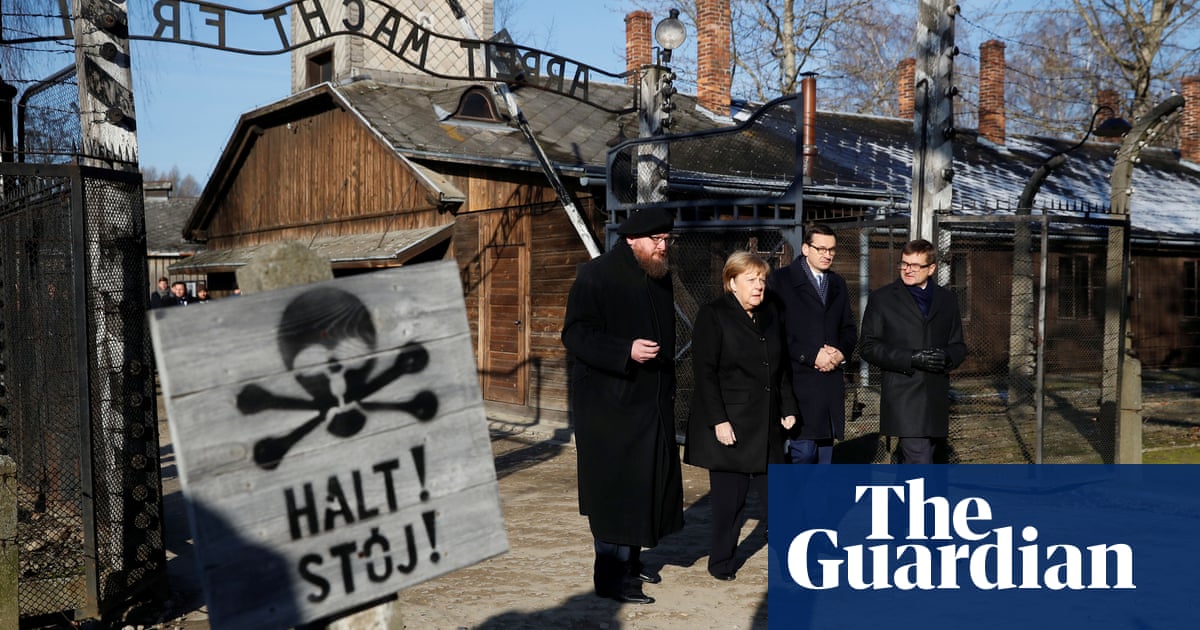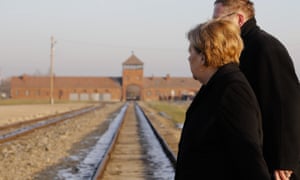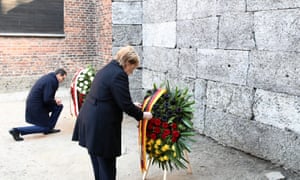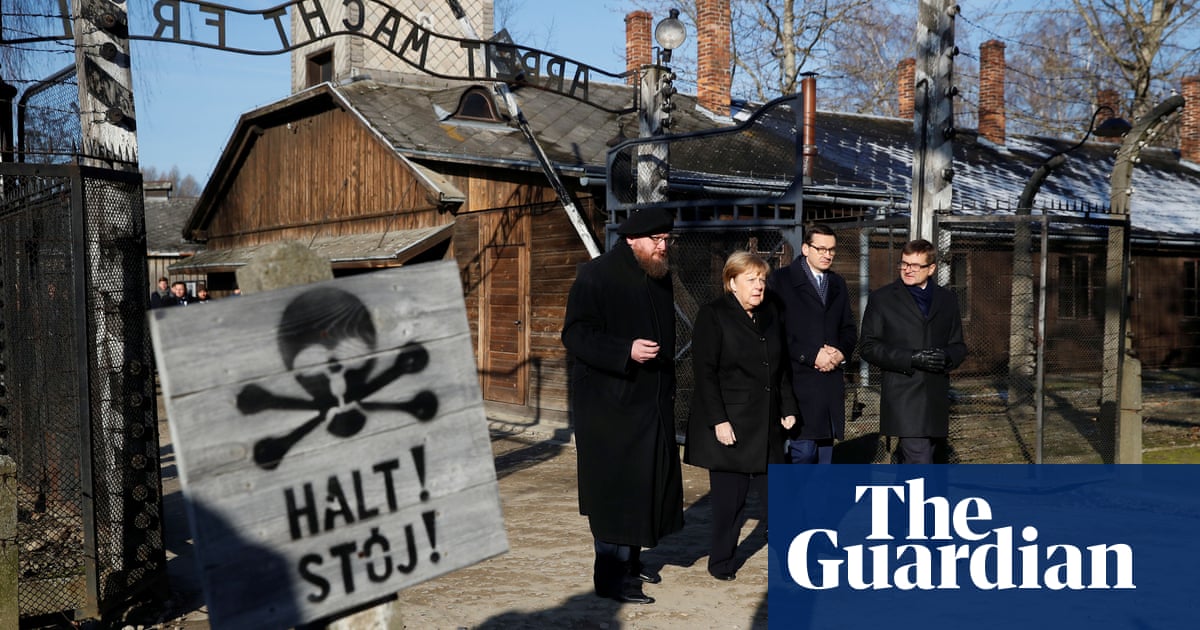Angela Merkel speaks of ‘deep shame’ on first visit to Auschwitz
German chancellor says crimes at Nazi death camp will always be part of countrys history

Angela Merkel has expressed deep shame during her first visit as German chancellor to the Auschwitz-Birkenau Holocaust memorial and vowed to fight rising racism and antisemitism in Germany and Europe.
Dressed in black, Merkel said the crimes committed at the site in southern Poland where the Nazis ran their largest death camp would always be part of German history.
This site obliges us to keep the memory alive. We must remember the crimes that were committed here and name them clearly, Merkel said during a ceremony attended by the Polish prime minister, Mateusz Morawiecki.
I feel deep shame given the barbaric crimes that were committed here by Germans, she added.
The German chancellor also pledged a donation of 60m (51m) towards a fund to conserve the physical remnants of the site of the barracks, watchtowers and personal items of those who died, such as shoes, spectacles and suitcases.

Before her speech, Merkel and Morawiecki toured the camps crematorium where victims bodies were burned. They walked through the camps iron gate bearing the motto Arbeit macht frei (Work sets you free) and visited the barracks.
Since becoming chancellor in 2005, Merkel has paid her respects at other Nazi concentration camps, and she has been five times to Israels Holocaust museum and Yad Vashem memorial.
Polands foreign ministry called her visit historic in acknowledgement of the unique status Auschwitz has in the worlds collective memory. The ministry also noted it was only the third visit to the camp of an incumbent head of a German government.
Helmut Kohl went there twice, in 1995 and 1989. Before him, Helmut Schmidt was the first ever to visit in 1977. Merkel has previously visited both Dachau the first Nazi death camp and Buchenwald, together with the former US president Barack Obama.
No official reason has been given as to why this is the first time in her 14 years in power that she had visited the most notorious of the Nazi death camps. But speculation is rife in Berlin that she was keen to do so ahead of the possible collapse of her government, after repeated threats from the incoming new leadership of her junior coalition partner the Social Democrats to withdraw from government.
A rise in the number of antisemitic attacks in Germany has led to pressure for her to take a symbolic stand, especially following a brutal attack in front of a synagogue in the central city of Halle two months ago, in which two people were murdered by an attacker claiming he was driven by antisemitic motives.

Josef Schuster, the president of the Central Council of Jews in Germany, who is accompanying Merkel, along with Romani Rose, the chairman of the Central Council of German Sinti and Roma, said he welcomed her visit, calling it an important signal at a time of a swing to the right in Germany.
There is no other memorial site that so emphatically brings home the events of the Shoah than Auschwitz, he said. Rose said that even 75 years after its liberation the former Nazi death camp and the industrial mass murder that took place there still makes visitors shudder.
Schuster has repeatedly warned of the dangers of Alternative fr Deutschland, the leading opposition in the Bundestag, one of whose figureheads, Bjrn Hcke, has called for Germans to make a 180-degree turn in the way they perceive their culpability in the Holocaust, and referred to the Holocaust Memorial in Berlin as a monument of shame.
A huge rise in the number of visitors, from about 1 million five years ago to 2.15 million last year, has posed a particular challenge, the memorials director, Piotr Cywiski, told the Frankfurter Allgemeine newspaper, saying that visitors often tried to take home objects from the former death camp as souvenirs.
Nazi forces killed an estimated 1.1 million people at the Auschwitz-Birkenau complex during their occupation of Poland during the second world war. Most of the victims were Jews transported from across Europe to be killed in gas chambers. Tens of thousands of other people were killed there too, including Poles, Soviet prisoners of war and Roma. The camp was liberated by the Soviet army on 27 January 1945.
Read more: https://www.theguardian.com/world/2019/dec/06/angela-merkel-visits-auschwitz-camp-for-first-time
